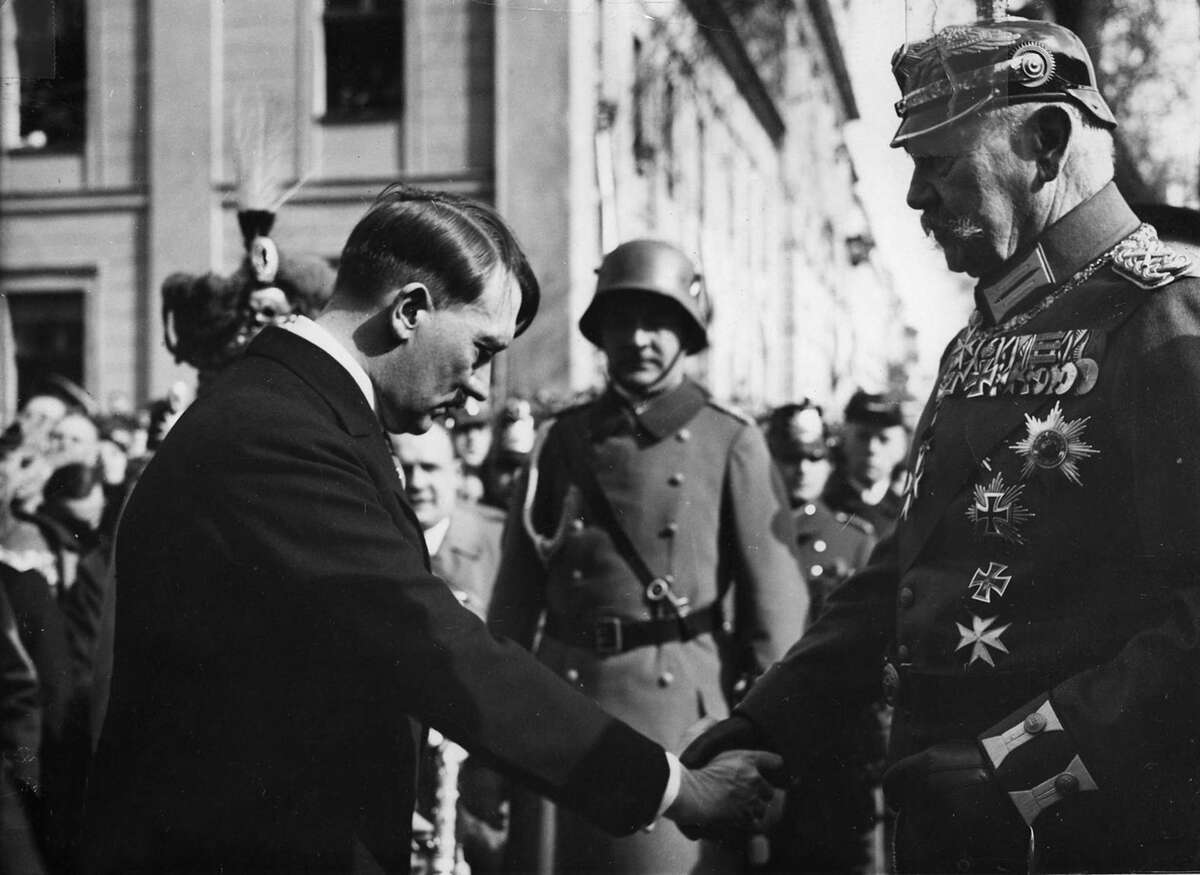Abstract
The Nazis used the opening of the newly elected Reichstag (the
elections having been held on March 5, 1933) to stage what historian Ian
Kershaw has aptly described as a carefully orchestrated propaganda play.
On the “Day of Potsdam,” they wanted to demonstrate not only the alleged
unity of the nation but also the historical continuity between the Third
Reich, Prussia, and the German Empire
[Kaiserreich]. The opening of the
Reichstag had originally been scheduled for the first week in April, but
the date was moved up to March 21, the first day of spring and the
anniversary of the opening of the first Reichstag in the German Empire
(March 21, 1871). Additionally, the main festivities were moved from
Berlin to the Potsdam Garrison Church, where Frederick II (“the Great”)
and his father, Frederick William I, were buried. Former crown prince
William was present as a guest of honor and representative of the
Hohenzollern dynasty, and his brothers Eitel Friedrich and Oskar (both
members of the Steel Helmet
[Stahlhelm] veterans’ organization)
also took part in the “Day of Potsdam” celebrations together with a
third brother, August William (an
Oberführer in the SA). On that same
day, members of the Nazi Party, the military, and the police held
parades like those in Potsdam in other German cities. The population
followed the main events in Potsdam on the radio and over public
loudspeakers. The celebrations ended with torchlight processions in the
evening and a performance of Richard Wagner’s opera
Die Meistersinger von Nürnberg at the
Berlin State Opera on Unter den Linden. Hitler was in attendance.
The photo shows Hitler bowing deferentially as he shakes hands with
Reich President Paul von Hindenburg (right), who is dressed his imperial
field marshal uniform. Photo by Theodor Eisenhart.
